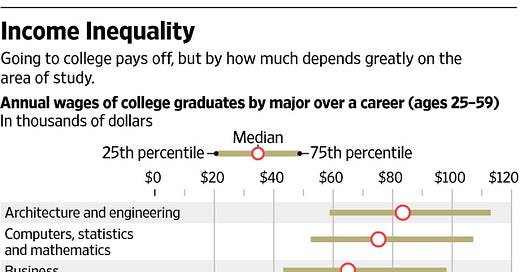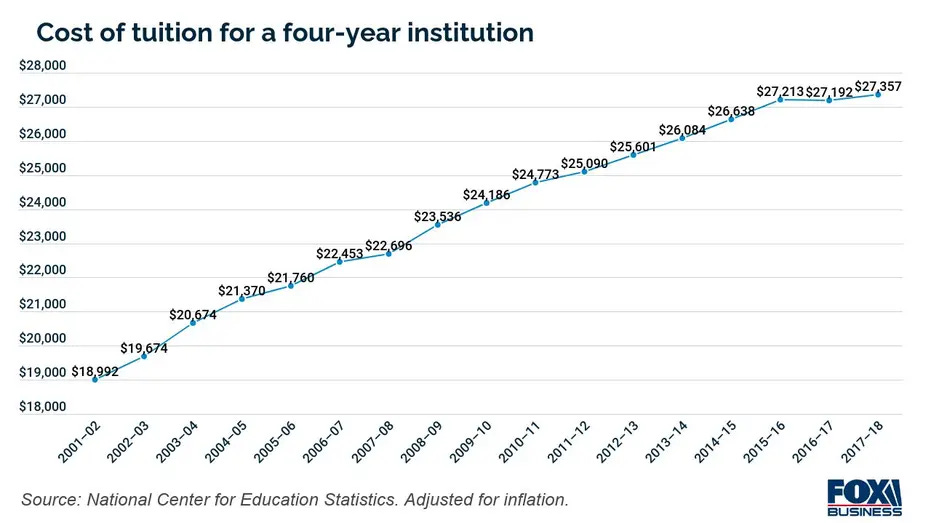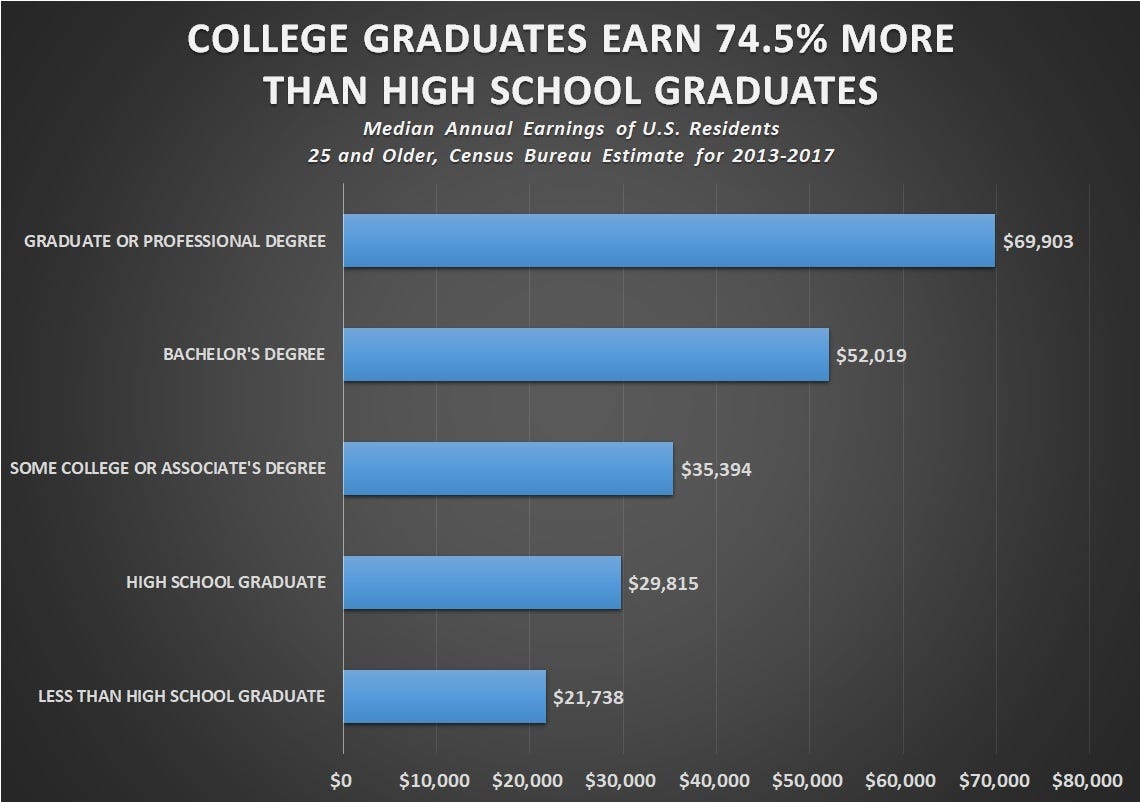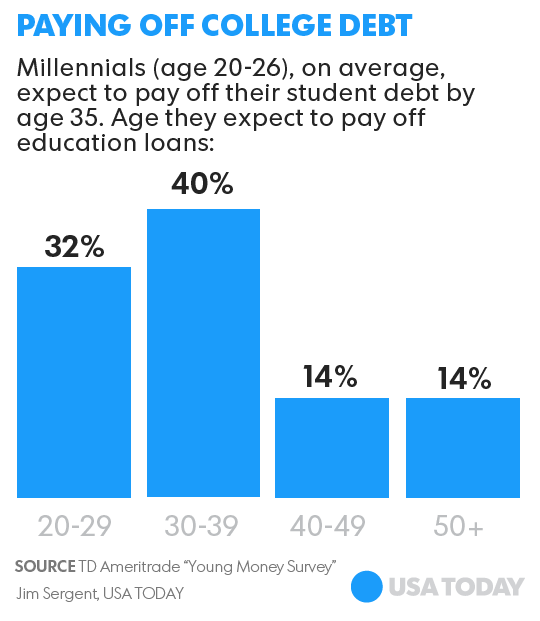Don’t miss my updates and join 140 ambitious and self-motivated legends:
College Isn’t Helpful Anymore
I wanted to drop out of college during my freshman year.
The expense and time commitment weren’t worth the value I was paying.
$150K.
4 years of my youth.
For what? A degree?
I knew I wanted more…
The issue was I didn’t have a clear idea of what I would do instead.
I couldn’t support myself and I didn’t have a good alternative that was justifiable for dropping out.
Thus, I ended up staying in college and following my entrepreneurial passions on the side until I completed my degree.
During my sophomore year, one of my close college friends was working at a startup. He started spending more time at their office than on campus. He eventually decided to dropout and go full time because he was learning more by operating at the startup than from his political science degree.
If he just wanted to work in startups after, and he was already doing it, why finish the degree?
By dropping out, he was able to save college expenses, start making money and buy a house. He never looked back...
I don’t think my friends or my own situation is unique. Many people are finding that college isn’t a good investment anymore.
Culture Eats College
There has been a slow cultural shift depicting college as something that is overpriced yet under delivers.
What once was the American Dream, is getting tossed through the mud by films.
This scene from Goodwill Hunting (1997) shows Matt Damon, a janitor, outsmarting some graduate school douchebag at the bar.
At the end of the clip (2:45), Matt says,
You could have got the same education for owning a library card instead of paying $150K
The graduate school douchebag responds,
At least I have a degree
The over-focus on the credential itself, and not the value it provides, is exactly the problem of the modern day educational system.
In the movie Notorious (2009), Biggie gets dissed by his teacher saying he will end up a garbage man if he keeps skipping class.
But Biggie does the math, and shows that a garbage man will actually make more than the college educated teacher leading the class.
Teachers are absolutely critical, and we do need more, but I think what this scene represents, is that our society over-values college education.
There is an opportunity to make an honest living and provide value to society outside of the traditional college structure including in many of trades like carpentry, plumbing, etc.
The ROI of College
At the beginning of the 20th century, there were less than 1,000 colleges with 160,000 students across the U.S. The number of colleges skyrocketed during the early and mid-20th century. State universities grew from small institutions of fewer than 1,000 students to campuses with 40,000 more students, with networks of regional campuses around the state.
College became a path to the American dream. A way into a white collar profession, owning a home, and a stable future. If you completed college, it was a good investment.
In light of the debt crisis, it’s becoming clear that if you’re not studying STEM, many majors actually won’t pay off for a very longtime.
Due to the increase in demand for college, with supply unable to keep up, the price of college has gone up significantly. But that isn’t news to anyone…
What has become clear though, is that even with price going up, young adults continue to go to college since it is the only path to a high paying job.
Without alternatives, the market becomes distorted.
Colleges charge exuberant prices that result in a negative ROI for many majors meaning it will take several decades for a student to pay back their student loan.
What makes student loan debt unique from other forms of debt is that it cannot be discharged. You can declare bankruptcy and abandon your credit card debt. You can lose your home. But you cannot ever leave your student loans behind.
This leaves universities with no incentive to do their job. They get paid no matter the outcome for students.


This bad investment leaves our youth footing the bill which is bad for our country.
The good thing, is that alternative solutions are on the horizon.


Alternatives to College
For young adults, universities just provide a credential served up with a maturation process and networking.
The skills students learn (if they learn any) are not usually helpful in the modern workforce and the students often require a lot of training.
There hasn’t been alternative options for young adults until recently….
Bloom Institute of Technology
Bloom is a web development online tech school that will pay you if you finish their program and still don’t land job offers. Talk about aligned incentives!
Bloom allows students to learn at their own pace with 0% tuition upfront. They partner with tons of companies to directly place students in roles post graduation. The skills are directly correlated with what companies need.
Open X
Open X offers a $50 monthly subscription for students to learn various hard-tech skills like 3D design, robotics, and carbon fiber. These courses teach students the skills that are needed by fortune 100 companies.
Again, this alignment between skill and job, allows Open X students to have instant opportunities.
As software and hardware continue to become a huge part of our economy, we need to find innovative ways to educate the next generation to be able to participate in the workforce in a more affordable and personalized way.













